Factors Affecting North Carolina Land Values
You would think coming up with the value of land would be easy, just go search on Zillow and see what similar sized properties are selling for. Then you see this…..3 same sized properties, same area… totally different price points:
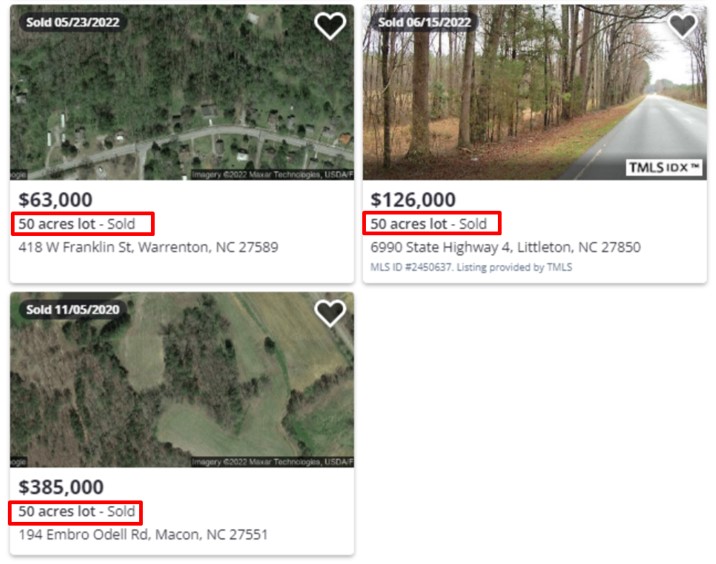
If you have a 50-acre lot, is it worth 60k or 385k???? Unfortunately, it could be either one or somewhere in-between, and it depends on a lot of stuff. Here are a few of the biggest factors affecting land values in NC.
Access-How do you get to your land?
One of the biggest factors affecting land pricing is the access to your property. When we look at properties, we have 3 categories for access:
Road Access
The best type of access is when your property is right along a created road. If there is road access, is it a dirt road or a paved road? Who maintains the road, if anyone? There are cases where properties are along private dirt roads that don’t have any sort of road maintenance agreement, which can make maintenance difficult (who pays for the costs??).
Easement Access
An easement is the right to cross or otherwise use someone else’s land for a specific purpose such as getting to your property. This can also impact the property value. Is there a road already cut in along the easement or is it completely wooded? If it’s wooded, there may be a significant up-front cost to getting the trees cleared so you can access the property. To have a legal easement it needs to be clearly written in your deed and is usually documented in a survey.
No Legal Access
This means there are one or more properties that block your land from touching a road and you have no written and recorded documentation of an easement. This significantly decreases land value.
Timber Quality
In North Carolina there is a lot of woodland, and the quality of the timber can have a significant impact on pricing. We look at timber quality in 3 categories:
Cutovers
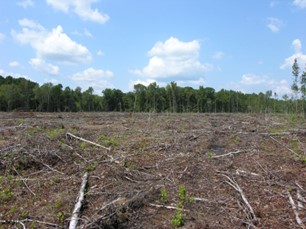
If you’ve recently cut your timber, you might hear your property described as a “cutover”. This basically means your property is a bunch of tree stumps, and this is a huge deterrent to potential buyers. These properties will sell for SIGNIFICANTLY less than a similar lot with trees….

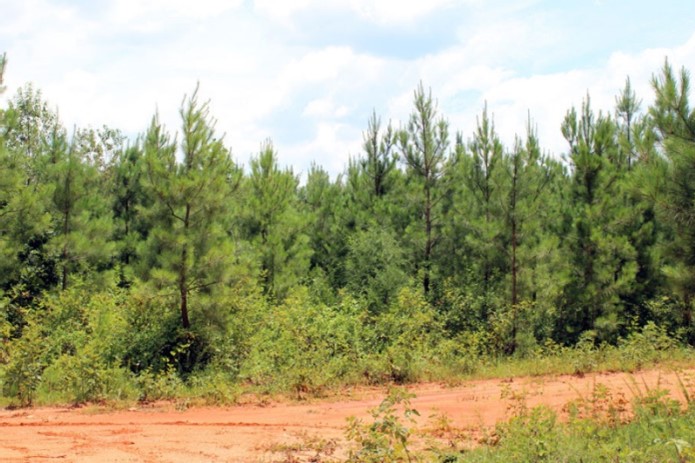
Young Timber
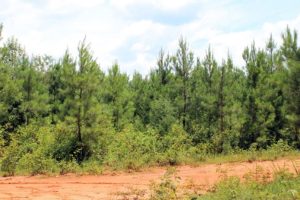
These properties typically were harvested and replanted with new trees. After about 10 years the trees will have regrown to a point where the land may look more appealing, but the timber is too young to add much additional value. These will typically be worth more than cutovers but less than mature timber, since it still could be an additional 15-50 years before the trees can be harvested.
Mature Timber
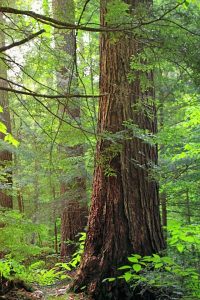
These are the big trees! Mature timber is usually 30+ years old and is ready to be harvested. These properties will sell for more than young timber or cutovers. Some people will bring in a timber company to evaluate the timber and estimate its value. This can help you get top dollar for your land.
Slope
NC has a vastly different topographies as you travel across the state, so slope is an important factor in determining value (especially in the mountains). The more severe the slope of a property, the more difficult it is to improve the land (build a house). Also look out for various drop offs/ditches that make your land less accessible as this can also have a significant impact on value.
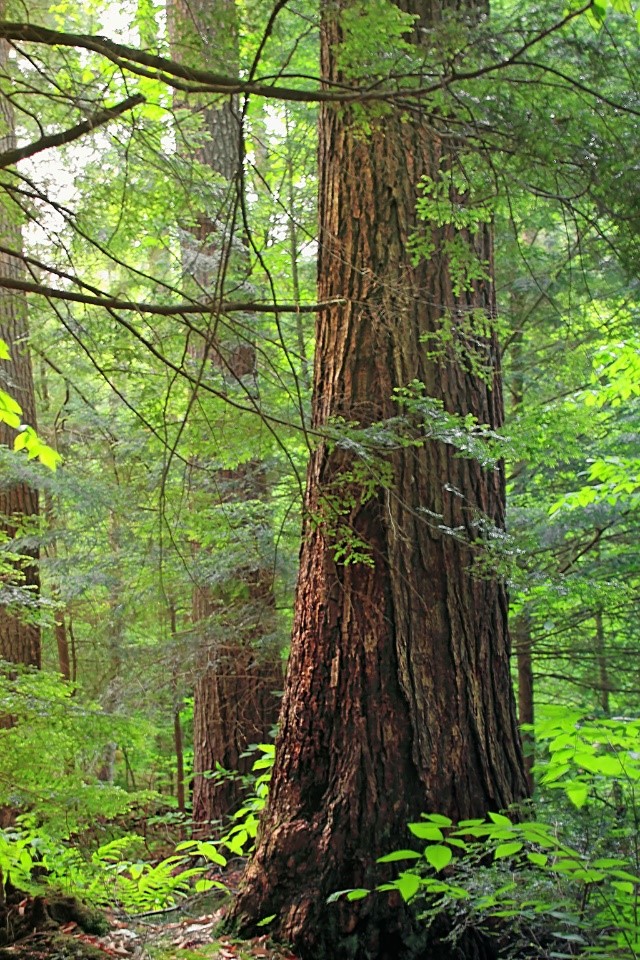
Wetlands and Flood Zones
Wetlands
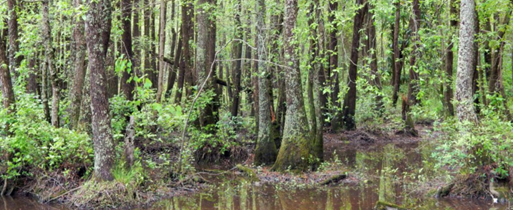
These are areas that have the potential to hold water. Your land may appear dry but still be considered part of a wetland area. In some parts of the state, there are huge wetlands areas that impact many properties. Sometimes these are hard to see because the area may still be heavily wooded; but building on these lots is very difficult to impossible. Generally speaking, wetlands will decrease the value of your land. This doesn’t mean you can’t do anything with the property, this land can make excellent hunting land. North Carolina Public Wetlands has a site you can use to see if there are wetlands on your property.
Flood Zones
These are areas designated on a Flood Hazard Boundary Map. These geographical areas are given a specific rating depending on the estimated flood risk. This is different than wetland areas. If a property is in a flood zone, it may not hold water typically but can flood when there is heavy rainfall. Having property in a flood zone can decrease the value because it decreases the potential uses of your property, and you’ll likely need to purchase additional flood insurance if you plan to build. Check out the FEMA Flood Map to see if your property is affected.
Soil Quality
The next major factor we see impacting land values in North Carolina is the quality of the soil. Soils can vary in NC, and you need the right type of soil to install a septic system. The quality of your soil can be different than the quality of your neighbors. If you want to ensure your property is buildable, you’ll want to have a soil scientist perform a percolation test or “perc” test. This will ensure that you can install a septic system, and can give an estimate of how large a house the system could support (ie 2 bedroom or 3 bedroom). Knowing this before you list your property can be helpful, and it can prevent you from having delays closing the sale. It can take several weeks to get your property tested, and it’s not uncommon for a buyer to want to have a perc test performed before they buy the land.
If your soil cannot support a septic system, it can significantly decrease the value of the property. Trust us, we know from experience. We actually had this happen on a 20-acre property, and it had a huge impact on the sale price.
Utilities/Improvements
The last factor that can significantly impact land values is the utilities available and any improvements made to the property. Does your land already have access to power? Public water? Public Sewer? Did you install a gravel driveway or put a fence around your property? All these things matter and can greatly affect the pricing.
Final Thoughts
As you can see there are a lot of things that impact land pricing. Your property could be right down the street from a property that sold for X, and your property could be worth a lot more or a lot less. Pricing land is much harder than pricing a house, and the process can be overwhelming. These are a few of the factors we look at, but not all.
Ps. Don’t hesitate to shoot me an email or give me a call/text if you have more questions. (jennifer@landduo.com, 919-535-4858)
-Jen


